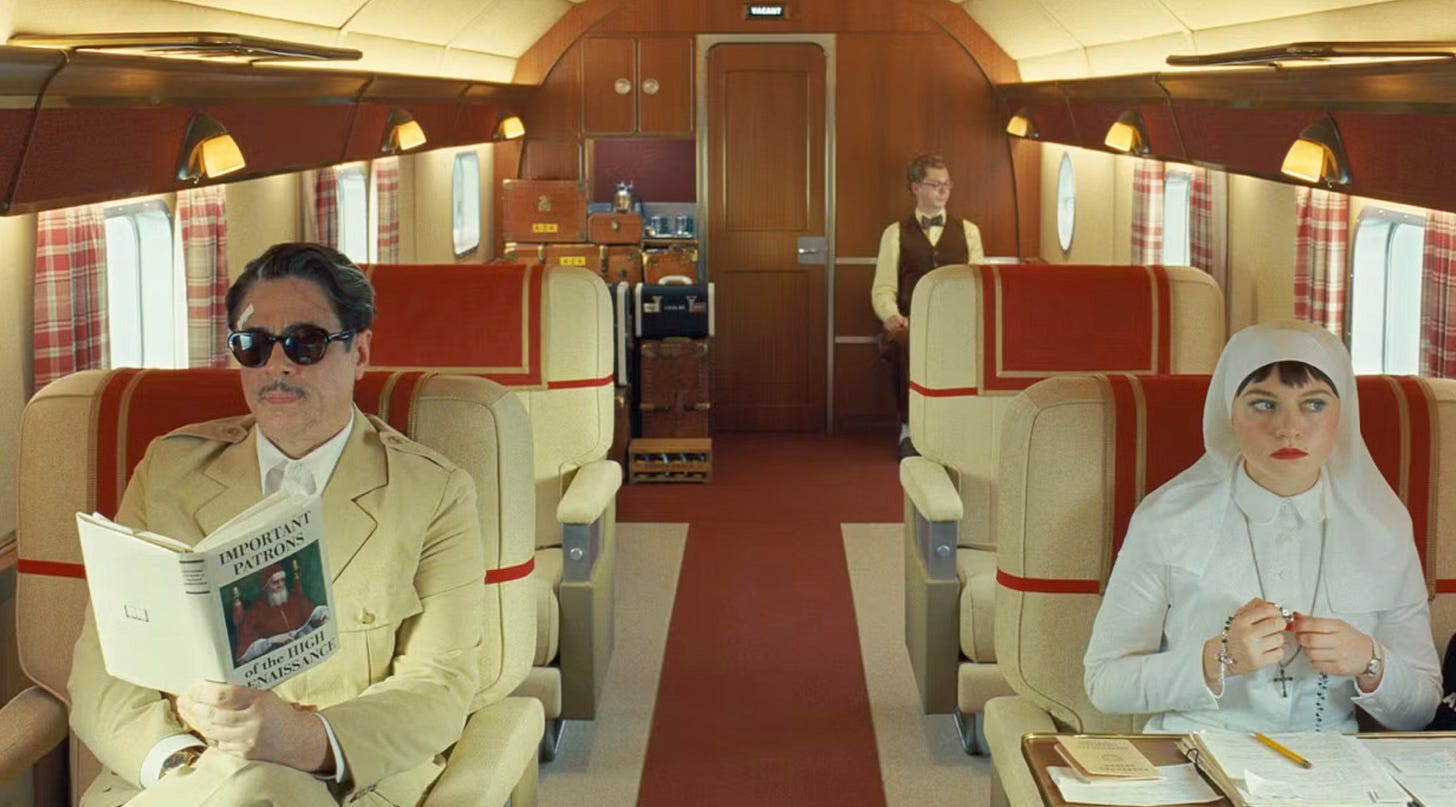To say Wes Anderson has a fecund imagination is the merest understatement. His films teem with bizarre details, and The Phoenican Scheme may be the most jam-packed to date. Hand grenades, shoeboxes, flaming arrows, bejewelled pipes, obscure books on entomology… there’s no end to it! Any critic who believed there was some deeper symbolic value in all this bric-à-brac could go mad trying to decode it.
One’s sanity might be similarly tested attempting to make sense of the dialogue, which seems to grow more confusing as each new character is introduced. It’s as if Anderson and Roman Coppola got stoned while writing this script and didn’t bother checking their efforts the following morning. They were having so much fun they couldn’t stop adding little twists and flourishes, but these pleasures translate into an uncomfortable degree of verbosity.
I used to be a devoted fan of Anderson’s films, but I think my affection peaked with The Grand Budapest Hotel (2014). Watching The French Dispatch (2021) and Asteroid City (2023) it felt as if the director had dialled up the quirkiness to dangerous levels. These films were more absurd than funny, reducing the viewer to a state of stupefaction, never knowing what’s going to happen next, wondering when it’s OK to laugh. In the cinema, one constantly hears snorts of truncated laughter as someone in the audience thinks they might have seen or heard something hilarious but can’t be sure.


